How will the rules address proprietary secrets?
"Halliburton has said that having to identify its frac'ing ingredients would mean giving away trade secrets, much like requiring Coca-Cola to reveal its secret for Coke. Here's a thought: Coke does tell consumers what's in every can of its soft drinks, even if it doesn't reveal the exact recipe. And last time I checked, spilling some on your lap won't bring on heart, liver and respiratory failure" (Gas industry secrets and a nurse's story).
"The intensive care doctor decided to treat her for chemical exposure, but when he called the energy company to find out how to diagnose and treat her, he couldn’t get what he needed" (Nurse sick after aiding gas worker).
Congress exempted fracturing fluids from the Safe Drinking Water Act as part of the 2005 energy bill. "ZetaFlow is a proprietary chemical of Weatherford, a hydraulic fracturing company working on contract for BP on the Southern Ute land where the spill occurred. The makeup of the liquid is a trade secret" (S. Utes not told of frac spill).

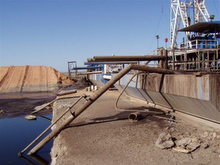



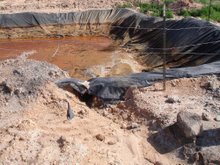


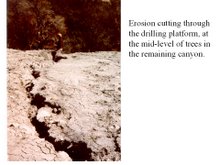
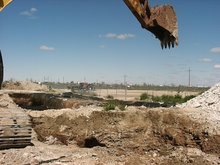
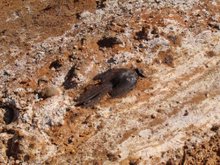
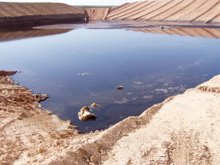
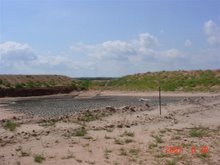
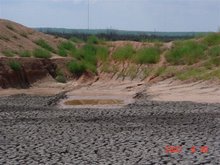

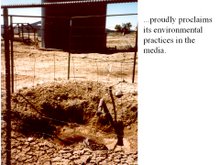
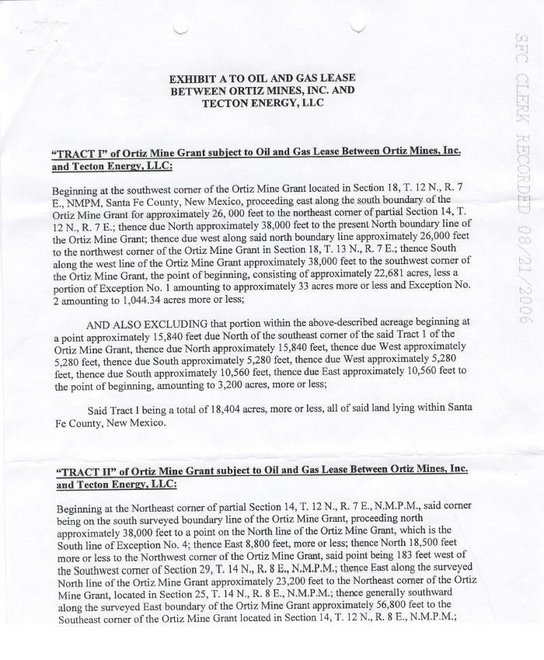
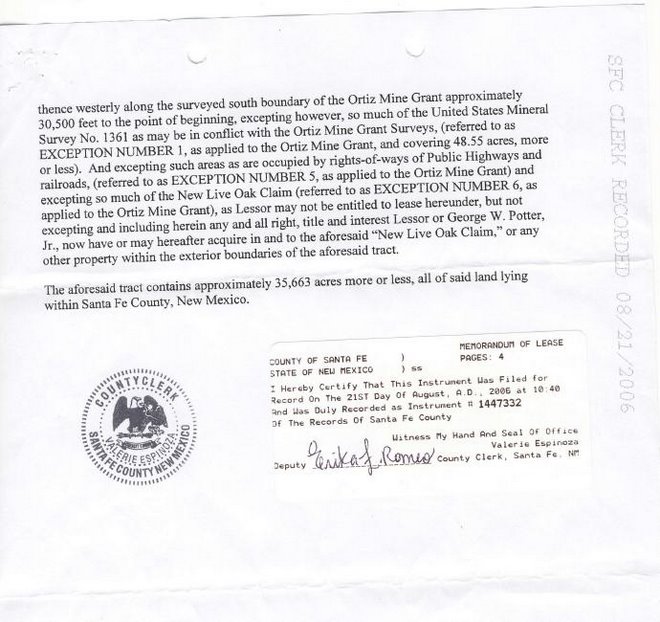


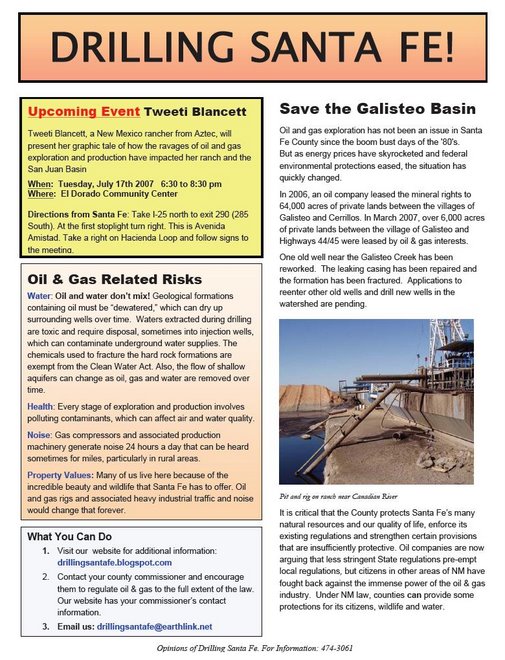
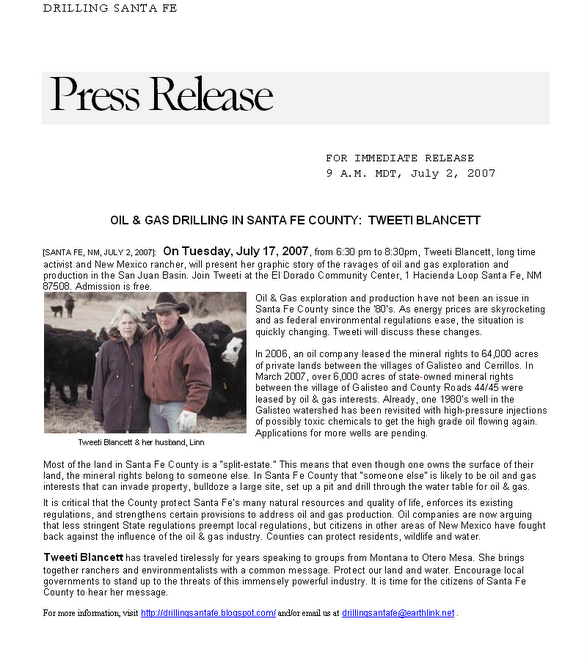
The real question(s) we are facing in Santa Fe County are much simpler than what the media and county officials are talking about. I see at as two issues: First, can a county regulate industry to the point of protecting its own environment and have more stringent regulations than the state or Federal levels? Indeed, it must. In the case of Santa Fe County and the Galisteo Basin, we are really talking about a large water 'catch' system ( a watershed) and the county MUST regulate all materials being used in and around this basin, as county officials have sworn an oath to the constitutions (US and NM) to which they are bound to uphold the rights to the "health" of the citizens. The second issue is more rudimentary and in some 'Rovian" way we are circumnavigating the real truth: At question is who has the "dominant" rights, when it comes to a 'split-estate'? A landowner, who has paid perhaps hundreds of thousands of dollars, to own, build or otherwise occupy their residence and raise their family, or a corporation who holds a lease on some ambiguous minerals which may be in the earth beneath or near that landowner's property? If one studies constitutional law, it should be apparent that the rights go to the landowners and not to the mineral right owners. Based on such a conclusion the lesser and lessee of mineral right also should be personally liable for any harm that befalls a property owner, or resident on or near a site where drilling, exploration or any mineral extraction causes harm to the health, life or property of said individual(s). I expect us to hold Santa Fe County and it's officers and officials to that premise and I expect us to set a landmark decision which will effect such foolish exploitive corporations for the next hundred years - nothing less!
ReplyDelete